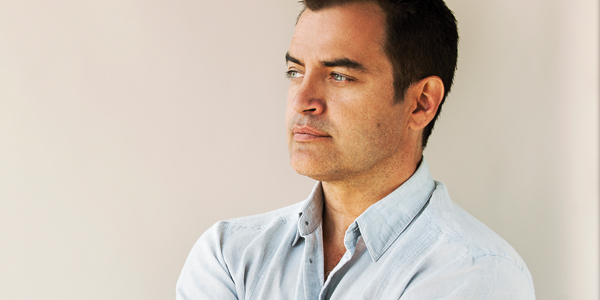As I sat on the couch with my husband, panic took over. “How are we going to pay the bills?”, I asked. “I don’t know,” he responded. “But don’t worry about it.”
“Don’t worry about it?” I thought. That’s all I do these days is fret over money. Will there be enough? What if there’s not? What can I do to get us out of this financial mess?
In a moment of surprisingly rational thought, I didn’t yell at my husband for his laid-back attitude about our financial situation. Instead I turned to him and asked, “When would you start to worry?” Taken aback by my calm and curious question, he paused for a minute and then responded, “When they start repossessing our stuff.” I just stared at him in disbelief until we both broke out in laughter.
What followed was a wonderful conversation about our different financial upbringings, money messages, and thoughts about recently losing thousands of dollars to an unethical construction contractor we hired last year. For the first time I understood why my husband acted the way he did around money and how we really came from two different financial worlds. I was raised by parents who taught me, from an early age, to save, invest and spend wisely.
At seven years old, my dad took me to the local savings bank and I opened my first passbook savings account. Each month I would travel to the bank with my dad and my piggy bank to deposit my money. I just loved seeing the interest accumulate! Conversely, my husband was never taught how to balance a checkbook, save money, or invest. Instead his mom was busy raising two young children without a father and working long hours to make ends meet. Money was a source of stress in his house, not a source of pride as it was in mine. He avoided money. I obsessively focused on it.
Our different money styles and attitudes complemented each other’s and worked for over a decade of marriage. But when faced with a financial crisis, these roles no longer served us. His avoidance of all things financial and my hyper focus on money were driving us both crazy. It was time to learn how to have a new relationship with money and to work together as a couple to see our way out of this mess.
After this enlightening conversation, I realized that I had great financial skills, but very little insight into what I actually thought and felt about money. In my search for clarity, I stumbled upon a book that would change the course of my life. Written by Brad Klontz, Ted Klontz and Rick Kahler, The Financial Wisdom of Ebenezer Scrooge taught me about the emotional side of money and the field of money psychology. Having worked as a clinical counselor for over fifteen years, the book and the approach spoke to me. For the first time, I started to understand how my family and personality impacted my money mindset and how I could shift my beliefs to live a more peaceful and prosperous life.
A money mindset is a set of beliefs or “money scripts” that impact your saving, spending, and investing behavior. Just like a movie script tells an actor what to say and how to behave in each scene, a money script dictates what you say and how you behave toward money in a particular situation. Your money messages were developed during your childhood as you observed your parents, caregivers, and loved ones handle financial matters. Because these scripts were formed in your mind as a child when you could not fully appreciate the complexities of life, they’re often oversimplified generalizations that fail to hold true in all situations.
The tricky part about identifying your money scripts is that while some reside in your conscious mind, many exist just below the surface in your subconscious. Therefore, it is imperative to bring your money scripts to your conscious awareness if you are going to shift your money mindset and make better financial decisions.
With couples, finding out and appreciating each other’s money scripts and mindsets is important. Without realizing it, this is exactly what my husband and I did that day on the couch. We started really talking about money, learning about each other’s values and how they were expressed through our financial behaviors. We even learned to laugh about the differences, instead of fighting about them.
What started off as a financial crisis ended up being a blessing. My excessive worry dissipated and his head finally popped out of the sand. For the first time in our partnership, we were truly working as a financial team. And it felt – and still does – feel good.
Many couples are facing financial crises these days. The circumstances may be different than ours, but the tension and wear and tear it takes on a family is the same. Everywhere you turn, you hear news reports about the failing global economy, high unemployment rates, and politicians locked in stalemates over fiscal policy.
It’s hard not to be overwhelmed and discouraged about investing, saving, and spending money. Multiply those feelings by two and you have more couples fighting about finances. But what would happen if you looked at your situation differently? How might that impact the financial distress in your marriage? How might that improve your mood and lead to a richer life?
There’s a Chinese proverb that says, “In every crisis, there is an opportunity.” Losing a large amount of money to an unscrupulous contractor at first looked like a tragedy that would ruin my life forever. However, it ended up being a gift that taught me how to have a healthier relationship with money, how to talk more openly with my husband about finances and how to share financial responsibilities as a couple.
The next time you are tempted to judge a loved one for their financial behavior, stop and ask yourself, “What money script is fueling this decision? How is my money script similar or different than his or hers? How can I be more open to my loved one’s point of view?” By shifting your perspective from judgment to curiosity, you will actually get to the root of the issue, which are your thoughts and beliefs about money. Trust me, it feels better to explore and accept each other’s money mindsets than to fight about them.
Don’t wait for something bad to happen in your life! Take action today to improve your relationship with money.
Here are a few tips to get you started:
TAP INTO YOUR MONEY MINDSET.
The quickest way to tune into your thoughts and beliefs about money is to write a letter to George – George Washington that is. Start with a blank piece of paper and write down what you would like to say to money if it were a person. What would you like money to know about you? What feelings do you have about money? How might you like to work with money in the future? By tapping into your money mindset and making your beliefs about money more conscious you then have the power to change the ones that fuel unhealthy financial feelings and habits.
PRACTICE TALKING ABOUT MONEY.
Talking openly about how we think and feel about money is still taboo in our society. Make a point of breaking down this barrier by scheduling a time to talk about finances with a partner or trusted friend. It’s important to set some ground rules to make sure your conversation is productive. Start the dialogue by using “I” statements and avoiding blaming language. For instance, say “I am concerned about X, Y, and Z,” not “You did X, Y, and Z.” It may feel like a subtle difference, but it will get the dialogue off on the right foot. Next, actively listen. This type of listening involves paying attention to both verbal and non-verbal communication to find meaning in what your partner is saying. It involves listening and reflecting back your partner’s thoughts and feelings without adding any of your own. Lastly, practice curiosity. Go into the conversation with a healthy dose of curiosity. Pretend you’re a scientist interviewing a subject for a research project. Ask thoughtful questions to learn more about your partner’s viewpoint. When you are truly curious you learn more and you are too focused with genuine wondering to pick a fight.
GIVE THE GIFT OF FINANCIAL LITERACY.
I was fortunate to have a mother and father who taught me how to manage and invest money as a child. Unfortunately, I am in the minority, but you can take action to change this fact by giving the gift of financial literacy to yourself or someone you love. If you lack basic financial know-how and insight, invest some time in reading a book on the topic or visiting websites such as FeedThePig.org and NAFE.org to learn more. For the young people in your life, capitalize on opportunities such as shopping together to teach them about budgeting and return on investment. If each of us gives the gift of financial literacy to only one person, the whole world will be a better place.






